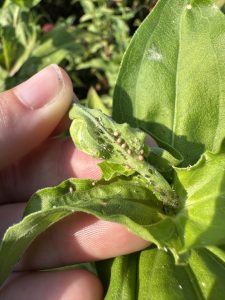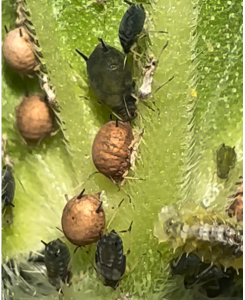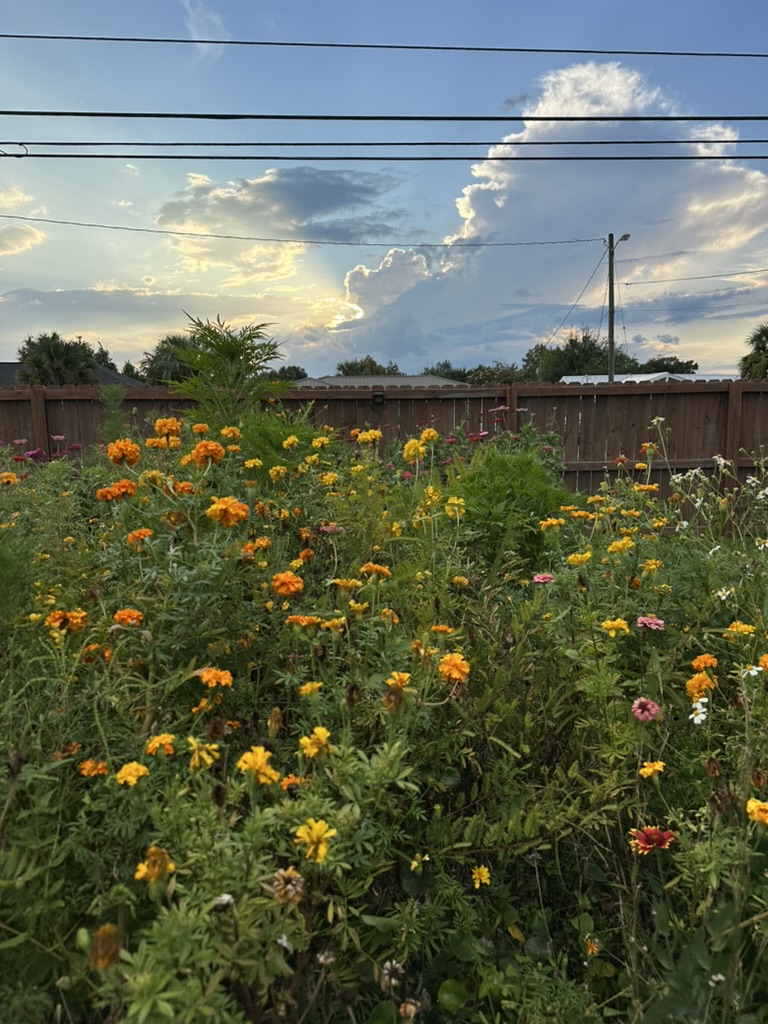One of my favorite ways to spend the morning lately is in the garden drinking my coffee. There’s no intended purpose, other than to look and see what I can find. I always end up finding something interesting! Scouting your garden does not have to be a formal process, but it is more effective when done regularly. This can help to avoid the “it happened overnight!” phenomenon that we hear frequently. Pests and diseases do not typically cause damage that quickly. Regular scouting helps you notice small symptoms before they become big problems. Training your brain to notice these small changes happens over time with your scouting, but just like any new skill, you need to practice! Give it a chance and watch the tiny world open up around you. Come scout the garden and see what we find.


In this photo you can see a close up of the mummified vs. regular aphids. For more information on parasitic wasps and other natural enemies see: https://edis.ifas.ufl.edu/publication/IN120
I noticed some wrinkled leaves on the new growth of a zinnia. Wrinkled new growth can be a sign that a piercing-sucking insect is causing damage. Turning over the leaves revealed aphids, a common culprit on zinnia. In this photo we can see aphids in a few different life stages. Importantly, we also see that some of the aphids are serving as food for beneficial insects. These mummified aphids are the ones you see with tan, golden bodies that are larger and more round. A small, parasitic wasp larvae, is living inside the aphids body– using it for protection and food until it is ready to emerge. These are good signs of a healthy working ecosystem and they can help keep aphid populations in control. This helps me to know that there are aphids in my zinnias, but that I don’t need to do anything about them right now. Natural predators are at work and can be more effective than chemical applications at this time. If you need help identifying insects in your garden, reach out to your local extension office. Not all insects on our plants are causing harm; and some are actually helping decrease pests.
I don’t always find pests in the garden. Sometimes I realize the irrigation timer was turned off or I take a really pretty picture for my instagram story (see below). These are still wins in my book! Remember that your landscape is an entire ecosystem and you are a part of it. It’s a great practice to walk around and take an intentional look at your plants when you get the chance, you may see something cool!
- Land, Water, and Lawns: Why Everyday Choices Matter - December 4, 2025
- Let’s Scout the Garden - October 23, 2025
- Non-GMO Seeds at the Garden Center? They All Are! - September 25, 2025

